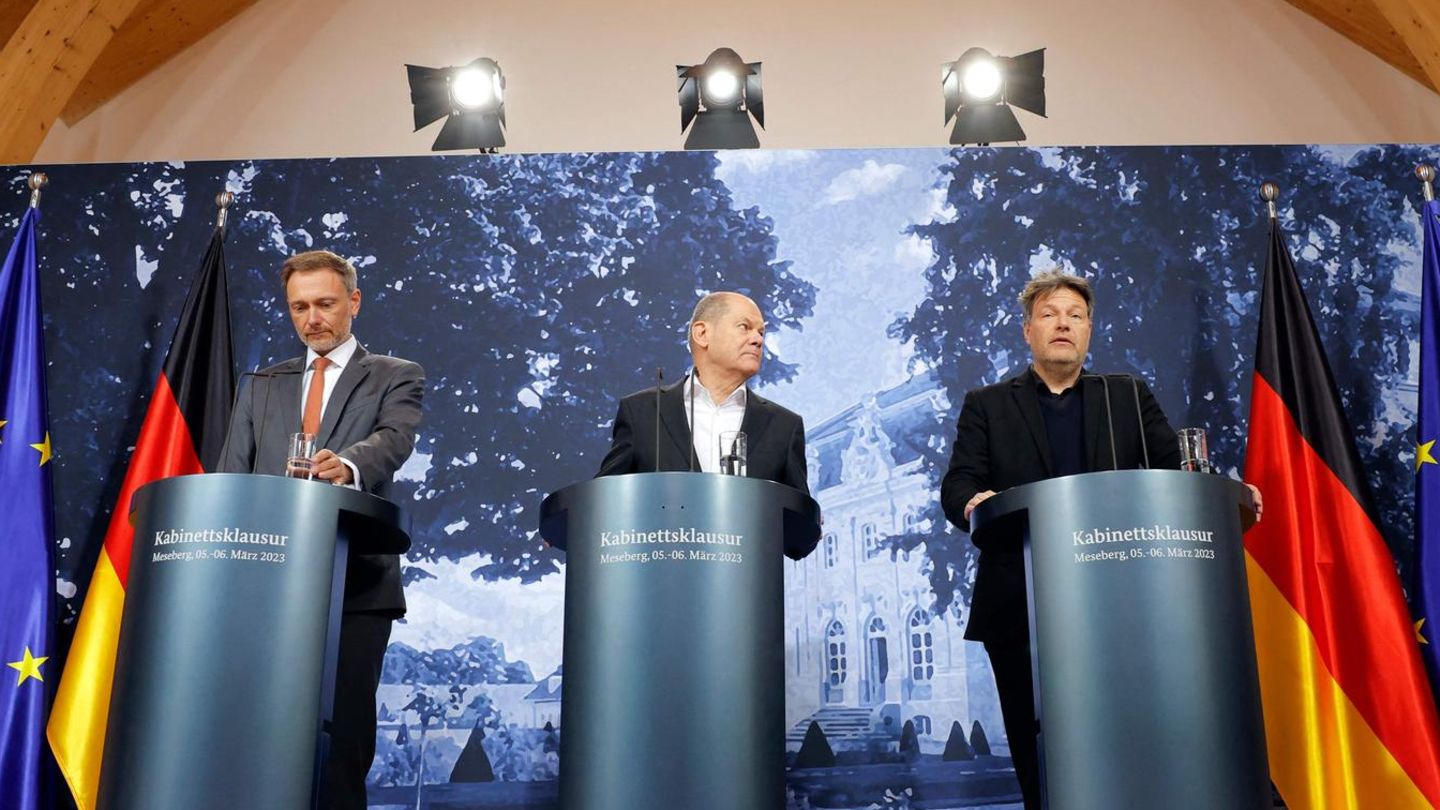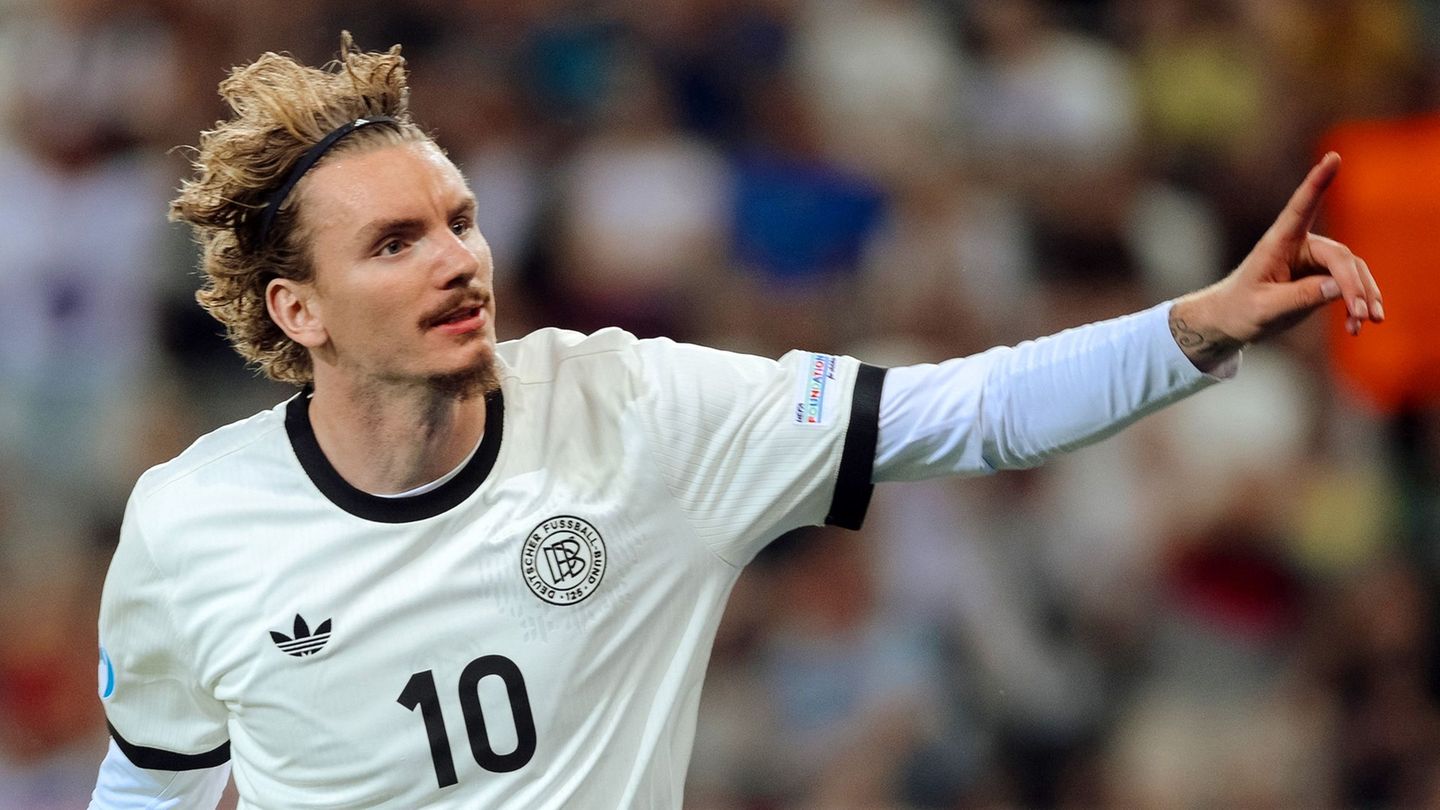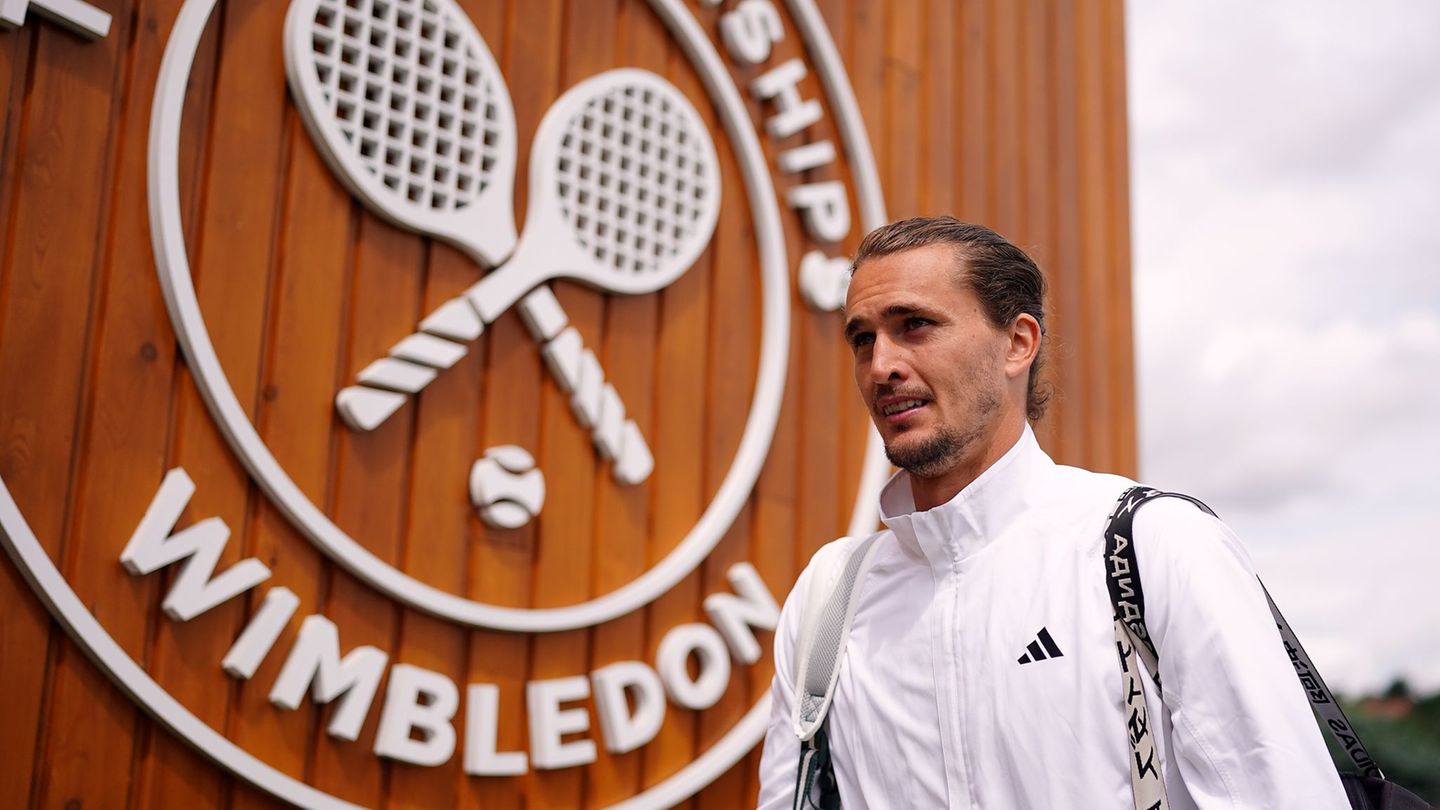Energy transition, budget, combustion engine off: there were probably some points of contention at the meeting of the traffic light coalition at Meseberg Castle. Apparently they weren’t addressed.
The leaders of the traffic light coalition drew a positive balance after the cabinet meeting of the federal government in Meseberg, Brandenburg. “It was a very good cabinet retreat,” said Chancellor Olaf Scholz (SPD) on Monday afternoon, speaking of constructive discussions over the past two days. With a view to the high demand for workers, he emphasized that Germany would “leave the problem of unemployment behind” in the coming years.
Scholz said the government had managed in its first year to lead the country through the crisis triggered by Russia’s war of aggression. This created “an impetus for our country”, which should now be taken along in order to master the major challenge of the ecological transformation of the economy.
Meseberg: Olaf Scholz wants a fast energy transition
Scholz expressed his confidence that “we will shoulder this major task”. But every woman and every man would be needed as workers, including workers from abroad. “We need speed,” he emphasized, with a view to the restructuring of the economy and energy production, for example four to five new wind turbines would have to be built every day by 2030 and electromobility would have to be promoted.
“We are facing major challenges in terms of transformation,” said Vice Chancellor Robert Habeck (Greens). But he also pointed out that 20 years ago there was hardly any green electricity in Germany and that a lot had been achieved since then. Challenges “always seemed to be such a big mountain”, but there were “every chance of overcoming the big challenges. He was confident that “we would get out of the exam and solve all the questions”.
caesura in Parliament
From the eco-party to the Kosovo war to traffic lights: 40 years ago, the Greens entered the Bundestag
Christian Lindner praises the “good” retreat
“It was a good retreat,” said Finance Minister Christian Lindner (FDP). With regard to the disputes in the coalition, he said that there were also many opportunities for informal talks in Meseberg. “That will also help us in our day-to-day political business in Berlin.” Regarding discrepancies, for example in the planning for the 2024 federal budget and the medium-term financial planning, Lindner said that there was “no reason” to discuss the budget issue during the exam. The first round of talks in the cabinet has already been completed, he is now consolidating the current status “and then we will finalize the cabinet draft”.
Lindner was also “100 percent confident” that there would be an agreement on the controversial issue of basic child security. He pointed out that the performance should not come until 2025. In the morning, the ministers of the “Ampel” had already spoken of constructive cooperation in the coalition, despite all the differences of opinion. He doesn’t have the impression that “we’re fighting like tinkers,” said Agriculture Minister Cem Özdemir (Greens). Transport Minister Volker Wissing (FDP) spoke of a “struggling to find the right way from different perspectives”.
Allegation of the left: traffic light coalition is “completely divided”
In addition to the budget and basic child security, points of contention in the coalition are also the design of the planned acceleration of planning for infrastructure projects, regulations for more climate-friendly heating systems and the resistance of the FDP to the end of new cars with combustion engines in the EU from 2035.
However, left-wing chairman Martin Schirdewan confirmed that the traffic light coalition was “completely at odds”. The government is becoming “more and more a blocking project for social and ecological progress” in Germany. Schirdewan criticized that the SPD and the Greens “allowed the FDP to take away their policymaking authority”. He particularly insisted on the introduction of basic child security.
Note: This text has been updated.
Source: Stern
I have been working in the news industry for over 6 years, first as a reporter and now as an editor. I have covered politics extensively, and my work has appeared in major newspapers and online news outlets around the world. In addition to my writing, I also contribute regularly to 24 Hours World.




